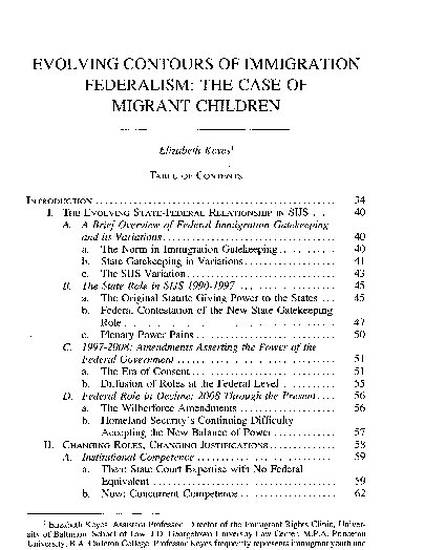
In a unique corner of immigration law, a significant reallocation of power over immigration has been occurring with little fanfare. States play a dramatic immigration gatekeeping role in the process for providing protection to immigrant youth, like many of the Central American children who sought entry to the United States in the 2014 border “surge.” This article closely examines the history of this Special Immigrant Juvenile Status provision, enacted in 1990, which authorized a vital state role in providing access to an immigration benefit. The article traces the series of shifts in allocation of power between the federal government and state courts between 1990 and the present, often to the detriment of the children themselves. Through careful analysis of the changes in the law and changes in federal capacity since the law was originally enacted in 1990, the article shows the unintended ways that the state role diminishes the federal quality of immigration law. The geographic disparities, the access to justice problems that have intensified in recent years, and the availability of another institutional design option, all compel those concerned with improving the protection of children to consider whether it is time to rethink the state gatekeeping role entirely, and federalize the process for these migrant children.
Available at: http://works.bepress.com/elizabeth_keyes1/27/
